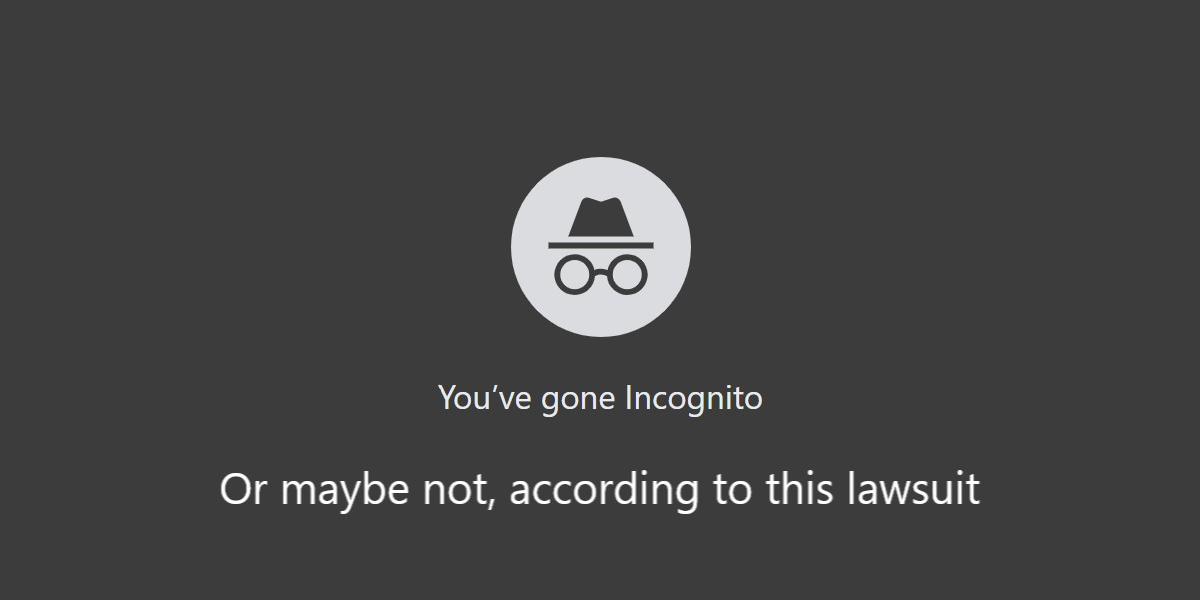Irony Alert: Lawsuit Alleging Chromes Incognito Mode Isnt Will Settle On Unknown Terms

The lawsuit brought against Google by netizens upset Incognito Mode in Chrome did not fully anonymize their activities looks set to settle before going to trial.
A US court filing [PDF] dated December 26 records that Google and the plaintiffs have agreed to a term sheet that, if approved by the judge, will conclude the matter. Those terms of the proposed settlement weren’t disclosed. But the parties seem sufficiently confident a deal will be done that another filing vacates the court date held for the matter, so all concerned can stop preparing for a trial and focus on nailing down the agreement.
The case kicked off in 2020 when concerned netizens argued Chrome’s Incognito Mode – which Google promotes as offering the chance to “browse the web privately," a concept Google illustrates with an icon depicting a spy – does not actually prevent the ads and search giant from observing “what the user is viewing, what the user last viewed, and details about the user's hardware."
The plaintiffs said Google’s Analytics and Ad Manager services, among other things, can be used by Google to monitor people's Incognito Mode browsing sessions. If you visit a site that embeds Google's analytics code, or one of its ads, the internet titan can (for instance) associate you via your IP address with those sites, and thus get an idea of what you're into online even with Incognito Mode engaged.
The Big G can absolutely do that, but whether it actually is in a meaningful and misleading way was at the heart of the allegations in the case. The lawsuit contended Google’s practices “intentionally deceive consumers,” and the corporation must therefore “be held accountable for the harm it has caused to its users.”
Google’s counterargument relied on the terms of use for Chrome, which the corp asserted points out that it doesn’t stop collecting info when users enter Incognito Mode.
- FTC wants to crack down on Big Biz profiting from kids' data
- Google hopes to end tsunami of data dragnet warrants with Location History shakeup
- Google pencils in limited third-party cookie purge for January
- Proposed US surveillance regime would enlist more businesses
In 2021, Google tried to have the matter thrown out – and failed to win that round.
The case has burbled along ever since: when The Register logged on to the USA’s infamously low-fi Public Access to Court Electronic Records (PACER) web application, we found 1,090 documents have been filed across the life of the case.
Document number 1,089 mentions the settlement.
The plaintiffs initially suggested damages of $5 billion, with around $5,000 paid to each of a million potential complainants. Sadly, document 1,089 doesn’t mention the agreed settlement.
The Register has asked Google for comment on the settlement and will update this story if we receive a substantive response. In the meantime, it should be clear: Incognito Mode is a handy way of ensuring you're not logged into a site when you visit it, but it is not a Tor-style cloak that makes you anonymous. ®
From Chip War To Cloud War: The Next Frontier In Global Tech Competition
The global chip war, characterized by intense competition among nations and corporations for supremacy in semiconductor ... Read more
The High Stakes Of Tech Regulation: Security Risks And Market Dynamics
The influence of tech giants in the global economy continues to grow, raising crucial questions about how to balance sec... Read more
The Tyranny Of Instagram Interiors: Why It's Time To Break Free From Algorithm-Driven Aesthetics
Instagram has become a dominant force in shaping interior design trends, offering a seemingly endless stream of inspirat... Read more
The Data Crunch In AI: Strategies For Sustainability
Exploring solutions to the imminent exhaustion of internet data for AI training.As the artificial intelligence (AI) indu... Read more
Google Abandons Four-Year Effort To Remove Cookies From Chrome Browser
After four years of dedicated effort, Google has decided to abandon its plan to remove third-party cookies from its Chro... Read more
LinkedIn Embraces AI And Gamification To Drive User Engagement And Revenue
In an effort to tackle slowing revenue growth and enhance user engagement, LinkedIn is turning to artificial intelligenc... Read more

